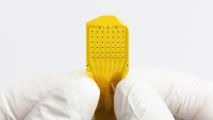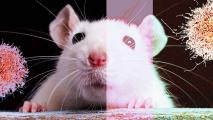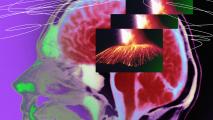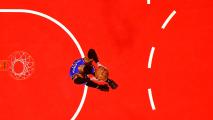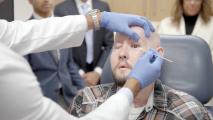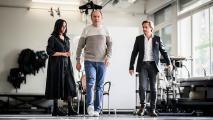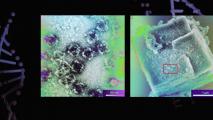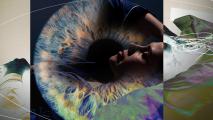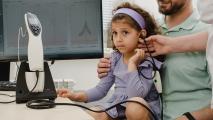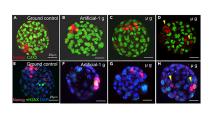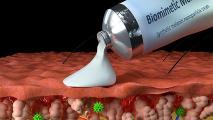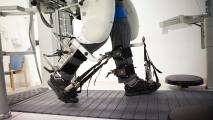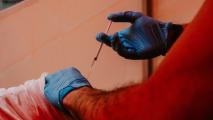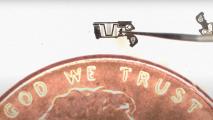
Biotech
Human history has been all but defined by death and disease, plague and pandemic. Advancements in 20th century medicine changed all of that. Now advancements in 21st century medicine promise to go even further. Could we bring about an end to disease? Reverse aging? Give hearing to the deaf and sight to the blind? The answer may be yes. And soon.
More
How do stimulants actually work to reduce ADHD symptoms?
Stimulant drugs are thought to alter the activity of key neuotransmitters, dopamine and noradrenaline, in the brains of people with ADHD.
The centipede’s dilemma: Why overthinking is killing productivity
The centipede’s dilemma refers to the phenomenon where becoming aware of one’s own ability or competence can lead to tripping up.
How physics models could improve NBA teams’ performance
Density functional theory, a model used to study quantum-entangled particles, has surprising relevance on the basketball court.
Bad trips: Study examines the long-term adverse effects of psychedelic drugs
New research suggests that some users face long-term difficulties following psychedelic use, including emotional and social challenges.
Arkansas man receives world’s first eye transplant
The world’s first whole eye transplant puts doctors a major step closer to restoring vision with donor eyes in the future.
Spinal implant lets man with Parkinson’s walk again
An experimental spinal implant has given a French man with advanced Parkinson’s disease back his ability to walk.
Memory champion explains how she memorizes 1,080 numbers in 30 minutes
Katie Kermode — a memory athlete with four world records — tells Big Think about her unique spin on an ancient technique to memorize unfathomably long lists of information.
“Iron Man” material made from DNA and glass is 4x stronger than steel
Using only DNA and glass, researchers made a material four times stronger and five times lighter than steel. It was inspired by Iron Man.
Mindfulness: New age craze or science-backed solution?
Research shows mindfulness can be an effective wellness practice, yet the effect sizes found in studies tend to be moderate.
Insomnia and mental disorders are linked, but exactly how is still a mystery
The relationship between insomnia and mental disorders is complex. It’s not just a case of “which comes first”?
New gene therapy reverses hearing loss in 4 children
A new gene therapy being trialed in China was able to reverse hearing loss in 4 of the 5 children to receive it.
Mouse embryos grown in space for the first time
A mouse experiment on the International Space Station suggests humans might one day be able to reproduce in space.
New “super melanin” protects and heals skin
A “super-charged” synthetic melanin is even better at protecting the skin and healing damage than the natural kind.
The psychedelic DMT causes the brain to become hyperconnected, scans reveal
Researchers gave 20 healthy subjects potent, intravenous doses of the psychedelic DMT and observed their brains. Here’s what they found.
Capsaicin: Could the compound that gives chili peppers their heat treat diabetes and obesity?
Capsaicin, the compound that gives peppers their burn, could help with diabetes and obesity, but only at an uncomfortably high dose.
Gold-laced gel could help you recover from a major muscle injury
A combination of electrical stimulation and a gold nanoparticle-laced hydrogel could one day help people recover from major muscle injuries.
How AI played an instrumental role in making mRNA vaccines
Years before Moderna created an effective mRNA vaccine against COVID, the company put into place AI systems to accelerate the research process.
Ex-NASA engineer Mark Rober created the world’s smallest Nerf gun — from DNA
Mark Rober and Pallav Kosuri created a Nerf gun so tiny they had to build it out of DNA. This DNA “origami” has the potential to revolutionize engineering.
Dumbing down or wising up: how will generative AI change the way we think?
Artificial intelligence tools are now managing huge swathes of information on our behalf, potentially changing what and how we think.
A short history of insomnia and how we became obsessed with sleep
Insomnia is big business and getting bigger. When did sleep become so important, so elusive, and so expensive?
Get inspired with the most innovative stories shaping the world around us.




